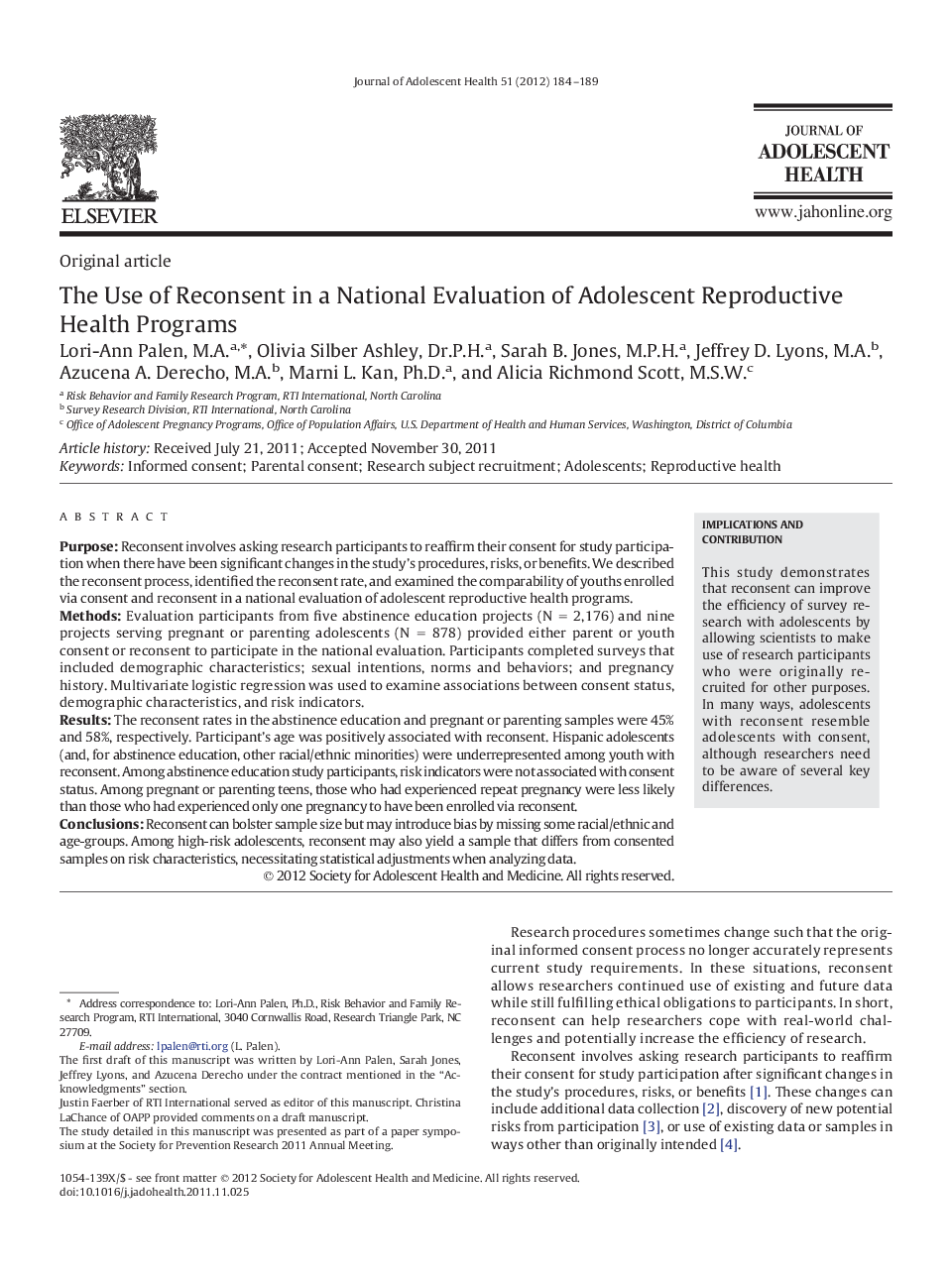| کد مقاله | کد نشریه | سال انتشار | مقاله انگلیسی | نسخه تمام متن |
|---|---|---|---|---|
| 1078695 | 950467 | 2012 | 6 صفحه PDF | دانلود رایگان |

PurposeReconsent involves asking research participants to reaffirm their consent for study participation when there have been significant changes in the study's procedures, risks, or benefits. We described the reconsent process, identified the reconsent rate, and examined the comparability of youths enrolled via consent and reconsent in a national evaluation of adolescent reproductive health programs.MethodsEvaluation participants from five abstinence education projects (N = 2,176) and nine projects serving pregnant or parenting adolescents (N = 878) provided either parent or youth consent or reconsent to participate in the national evaluation. Participants completed surveys that included demographic characteristics; sexual intentions, norms and behaviors; and pregnancy history. Multivariate logistic regression was used to examine associations between consent status, demographic characteristics, and risk indicators.ResultsThe reconsent rates in the abstinence education and pregnant or parenting samples were 45% and 58%, respectively. Participant's age was positively associated with reconsent. Hispanic adolescents (and, for abstinence education, other racial/ethnic minorities) were underrepresented among youth with reconsent. Among abstinence education study participants, risk indicators were not associated with consent status. Among pregnant or parenting teens, those who had experienced repeat pregnancy were less likely than those who had experienced only one pregnancy to have been enrolled via reconsent.ConclusionsReconsent can bolster sample size but may introduce bias by missing some racial/ethnic and age-groups. Among high-risk adolescents, reconsent may also yield a sample that differs from consented samples on risk characteristics, necessitating statistical adjustments when analyzing data.
Journal: Journal of Adolescent Health - Volume 51, Issue 2, August 2012, Pages 184–189